Fruits That Are Easy to Eat at Work
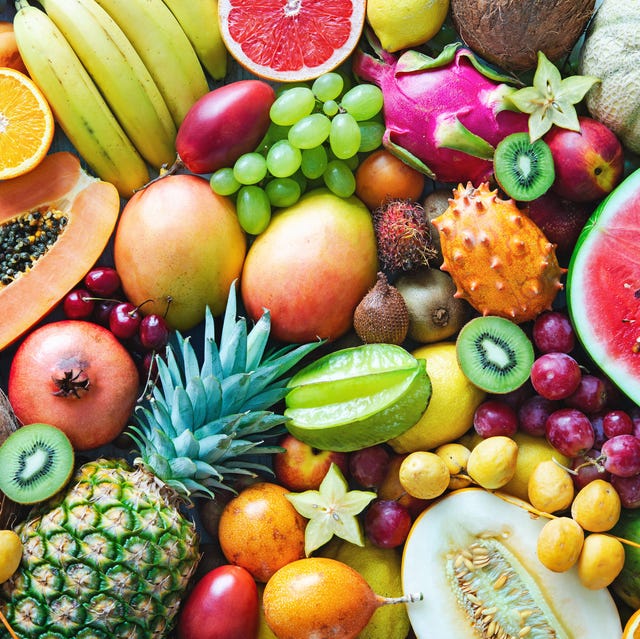
AlexRaths Getty Images
When it comes to eating more produce, you can't go wrong. Long story short: Every single fruit (and vegetable!) is a great option. Research has shown eating a minimum of four to five servings per day helps to boost mood and reduce your risk of heart disease, obesity and type 2 diabetes. Yet according to the Centers for Disease Control and Prevention (CDC), only 10% of Americans eat enough fruit — about 1½ to 2 cups daily. Many of us also miss out on sufficient dietary fiber, calcium, potassium and magnesium, all of which are found in abundance in produce. Potassium, for example, helps maintain a healthy blood pressure and you'll get it easily in bananas, prunes and cantaloupe. The fiber in fruit also supports better digestion and fills you up for fewer calories, making it a smart choice for your health overall and can help if you're trying to lose weight.
Whether you choose fresh or frozen, make it your goal to get more fruit into every meal. Sprinkle mixed berries into morning oatmeal or onto toast with nut butter, carry a banana or a bunch of grapes for a mid-afternoon snack, or toss avocado into a heart-healthy salad at dinner. No matter how you slice it, eating more fruit can benefit your body and your mind — starting with these ideas.
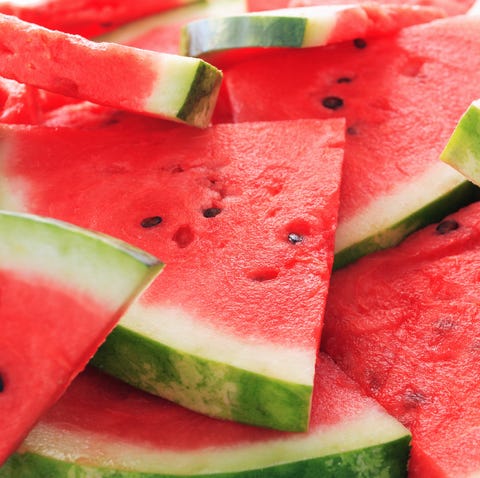
Vitalina Getty Images
1 of 25
Watermelon
Watermelon is 92% water, making it a great choice for hydration. Your food provides about 20% of your fluid intake, and eating water-packed snacks like watermelon can help you avoid subtle, headache-spurring dehydration. Because fruit is high in water, potassium and magnesium, it helps to offset excess sodium in your diet, too. Try it in a salad with feta and mint — or grill it for a summery dessert!
RELATED: 50 Genius Things to Do With Watermelon
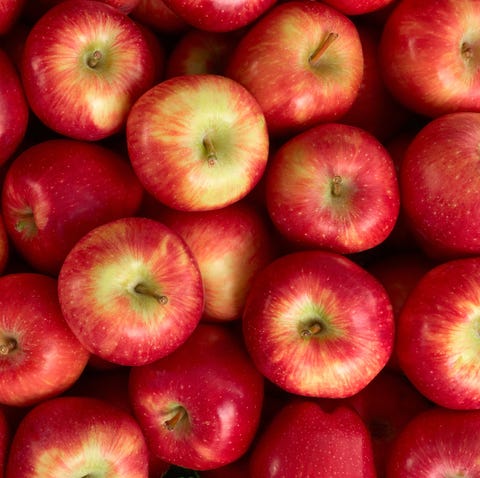
hdagli Getty Images
2 of 25
Apples
An apple a day may in fact keep your cardiologist away. Evidence has shown that frequent apple consumption may reduce total cholesterol, which can help reduce your risk of heart disease. That's thanks to the phenolic compounds — antioxidant compounds that help to promote healthy cellular function and proper blood flow — found in apple skins. The combo of vitamin C, fiber (about 5 grams per medium apple) and phytochemicals makes them a smart household staple for your whole family. And there are so many ways to eat them, from simple slices dipped in nut butter or yogurt, to stuffed with nuts and raisins and baked.
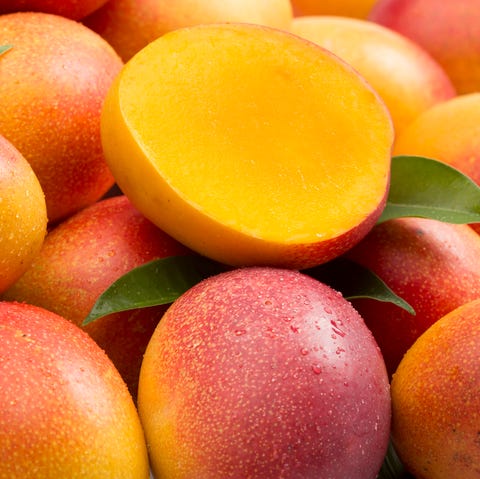
ALEAIMAGE Getty Images
3 of 25
Mangos
Munch on mango for a summery, delicious tropical treat filled with vitamin C, potassium- and beta-carotene. We love making a big batch of mango-filled skewers and loading up the fridge or freezer, so they're always on hand when you need a nosh. Plus, the prep gets your little ones involved in the kitchen, and that kabob adds an extra layer of fun! Diced mango is wonderful in a salad, or freeze chunks to throw into smoothies.
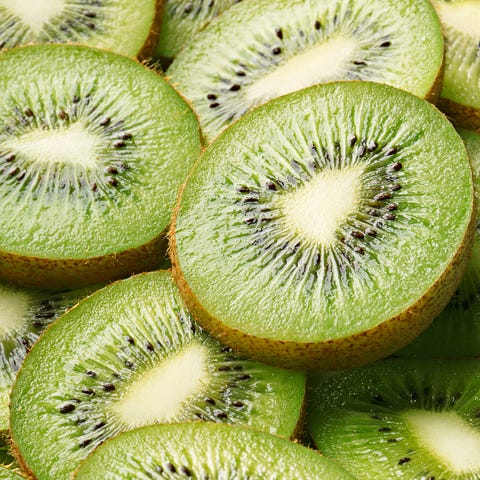
Vesna Jovanovic / EyeEm Getty Images
4 of 25
Kiwis
In addition to the vitamin C, potassium and antioxidants you'll get from kiwi, the combination of folate, magnesium and B-vitamins also found in this fruit can help you chill out. Some (early) research has linked eating kiwi as a pre-bedtime snack with an easier time falling asleep! Mix some into a slaw, or slice some for a cooling side dish.
RELATED: The Sneaky Foods That Make You Sleepy
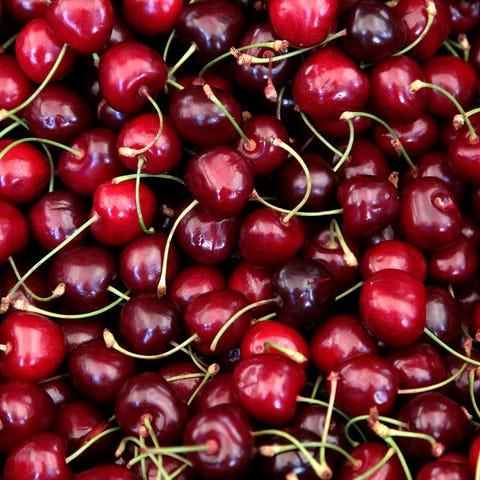
imagestock Getty Images
5 of 25
Cherries
Feeling stressed? Grab a handful of cherries. In addition to their multitude of antioxidant benefits, these little stone fruits contain quercetin, a type of antioxidant linked to promoting feelings of calmness.
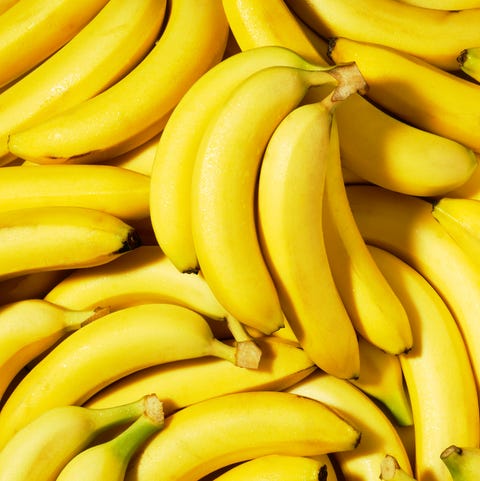
RedHelga Getty Images
6 of 25
Bananas
Rich in soluble fiber, bananas are an easy grab-and-go snack that can help lower cholesterol. For an extra heart-healthy boost, slice bananas on top of morning oats with a tablespoon of chia seeds and walnuts. It's a hearty, energy-packed breakfast loaded with fiber, vitamin B6, potassium, magnesium, vitamin C and manganese.
RELATED: 25 Cheap Healthy Foods You Can Buy at the Grocery Store
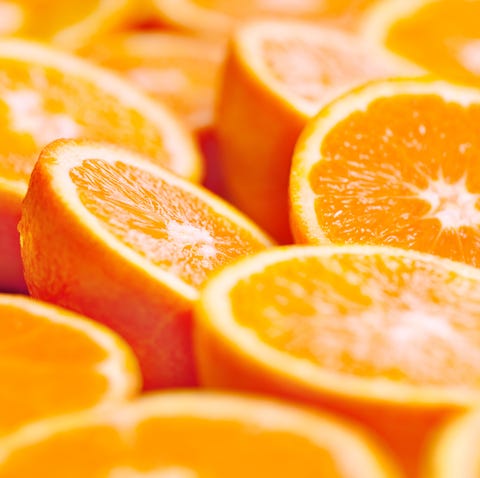
Dimitris66 Getty Images
7 of 25
Oranges
You already knew that oranges came packed with vitamin C, but get this: Citrus fruits have been shown to have anti-inflammatory, antioxidative and anti-cancer properties, according to research published in Chemistry Central Journal. Oranges are wonderful on their own, sliced into a salad, or used in cooking or baking.
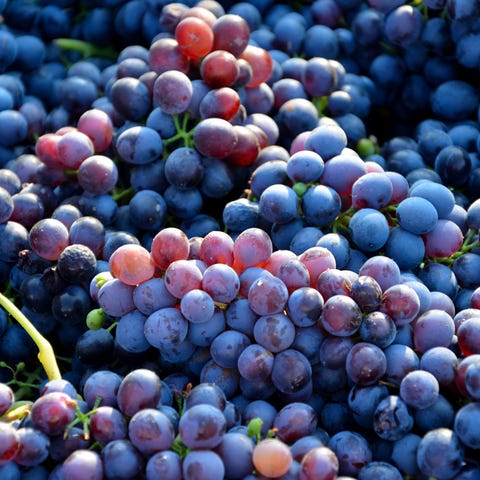
Michail Lazaridis / EyeEm Getty Images
8 of 25
Grapes
Grapes contain polyphenolic compounds with antioxidant properties, which may help reduce cellular damage. Adding grapes (about 1–2 cups per day) to your diet can help to protect your body's tissues and decrease markers of inflammation. Frozen grapes are a wonderful, hydrating summer treat, but also consider roasting grapes along with veggies on a sheet pan!
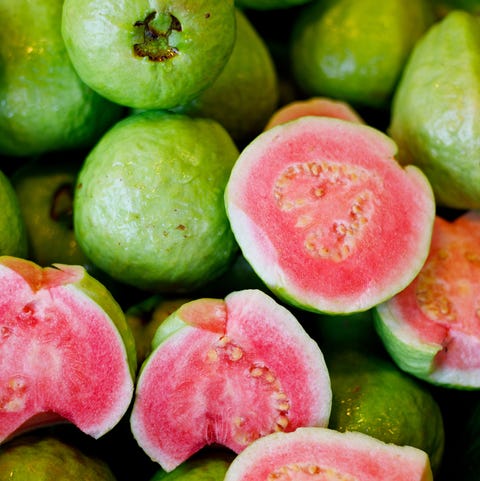
Thai Yuan Lim / EyeEm Getty Images
9 of 25
Guava
Give your immune system a boost with guava. They're rich in vitamin C, potassium and fiber, and have a fair amount of folate. With a tropical tang, guavas can be used to make a tasty jam, or turned into a syrup or glaze to use in a host of recipes.
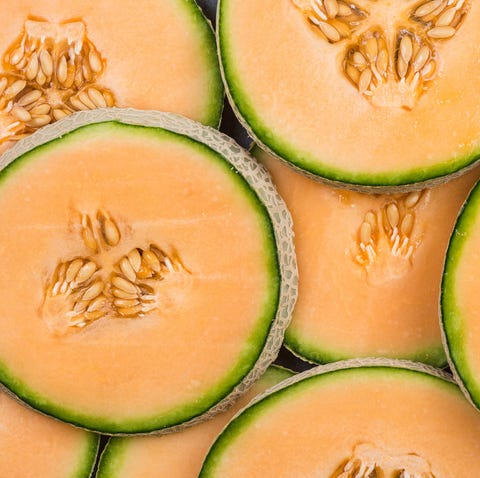
merc67 Getty Images
10 of 25
Cantaloupe
Cantaloupe is high in potassium, vitamin C and folate. The flavonoids found in melon have anti-inflammatory, blood sugar-stabilizing, and immune-boosting properties. Plus, water-filled cantaloupe offers a hydration boost. You can make a cool salad with cantaloupe and cucumber, with granola sprinkled on top for a bit of crunch!
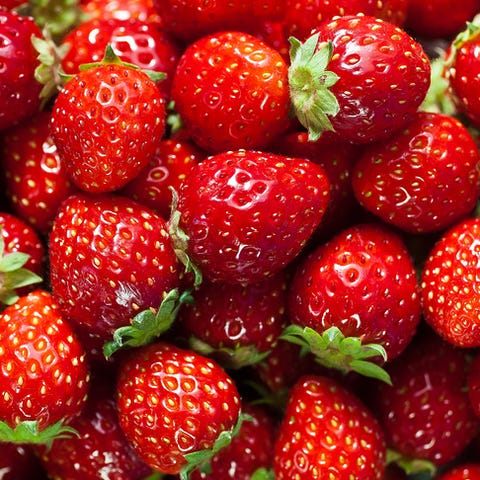
huayang Getty Images
11 of 25
Strawberries
Strawberries are a great source of antioxidants — especially vitamin C. Just one cup of halved strawberries packs about 150% of your daily value. The same serving also contains about 80 calories and up to 9 grams of fiber, a combo that helps you enjoy maximum flavor and fullness for a minimal number of calories. Use their sweetness to create wonderful desserts!
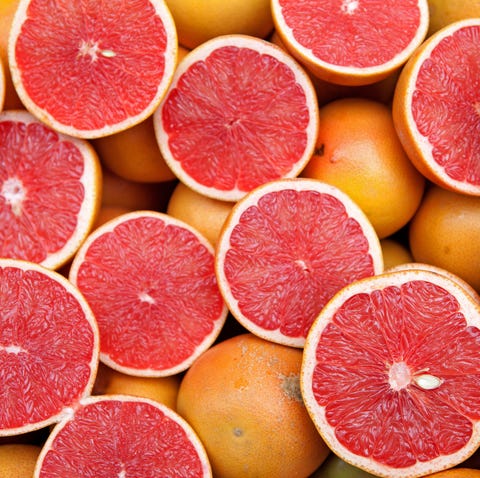
huseyintuncer Getty Images
12 of 25
Grapefruit
Like other citrus, grapefruit packs tons of vitamin C. Research has shown that consuming grapefruit improves blood pressure and may help to lower cholesterol levels. Make it easy to get those citrusy sections with a grapefruit knife and add them to salad, yogurt, granola or oatmeal.
RELATED: 35 Foods That Can Help Lower Your Cholesterol
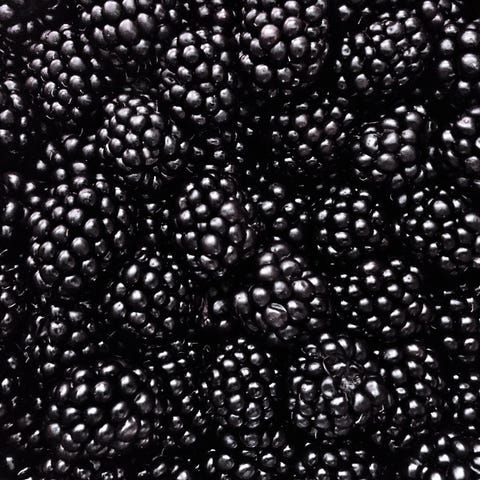
Lera Pyatnitsa / EyeEm Getty Images
13 of 25
Blackberries
Blackberries provide nature's perfect snack: They're deliciously sweet, satisfying and nutrient-packed. One cup can provide about half of the vitamin C you need each day. Plus, they're a good source of both vitamin K and manganese. Our favorite way to eat any type of berries? Swap them for jam in PB&J to add extra fiber, more antioxidants and less sugar.
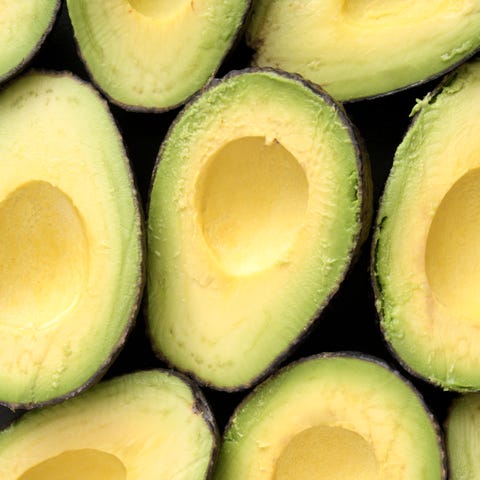
FotografiaBasica Getty Images
14 of 25
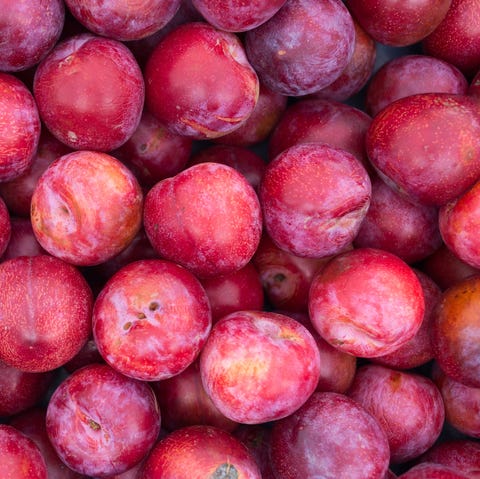
Norbert Kamil Kowaczek / EyeEm Getty Images
15 of 25
Plums
Plums have been shown to have anti-inflammatory benefits that may help to boost cognition. Choose dried prunes for even more calcium and magnesium, which have been linked to decreasing your risk of osteoporosis. Or when you're grilling chicken or a steak, throw on some halved fresh plums — the heat intensifies their sweetness.
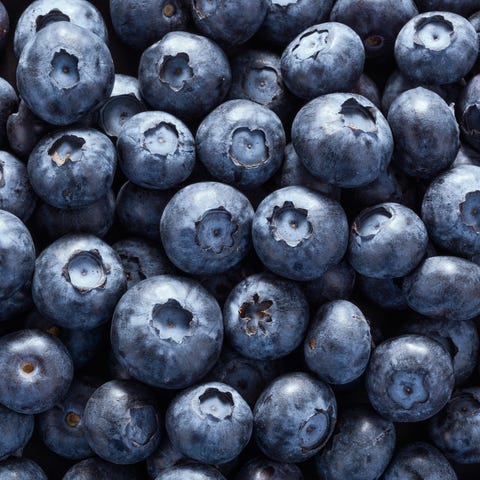
MirageC Getty Images
16 of 25
Blueberries
Since they're loaded with polyphenolic compounds, eating more blueberries can protect your heart by benefiting blood vessels and deterring harmful plaque or damage. The fiber in berries also slows down the rate of digestion in your GI tract, steadying the release of sugar into your bloodstream and offering a longer-lasting energy boost. Besides adding them to anything from oatmeal and yogurt to salads and grain dishes, consider the most obvious and delicious option: blueberry muffins!
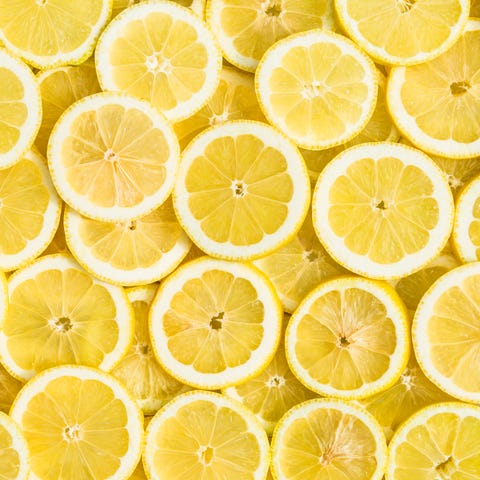
Kemter Getty Images
17 of 25
Lemons
Lemons are high in vitamin C, folate, potassium and flavonoids. Flavonoids have been linked to reducing your risk of cognitive decline by enhancing circulation and helping to protect brain cells from damage. Lemons add brightness to so many dishes, from savory to sweet.
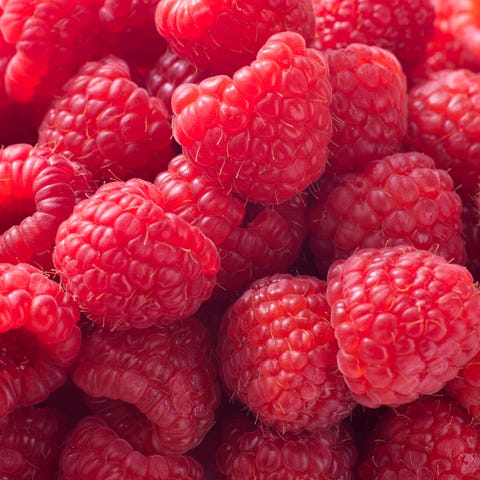
Twentyten Getty Images
18 of 25
Raspberries
Raspberries are one of the highest-fiber fruits, with one cup containing 8 grams. As a nutrient-packed choice, raspberries provide antioxidants and blood-sugar stabilizing benefits, especially when combined with a source of protein. Add 'em to your breakfast, whether that's oatmeal, a smoothie or yogurt — it'll help boost your energy levels and keep you satisfied until lunchtime.
RELATED: The 9 Healthiest Low-Sugar Fruits You Should Be Eating
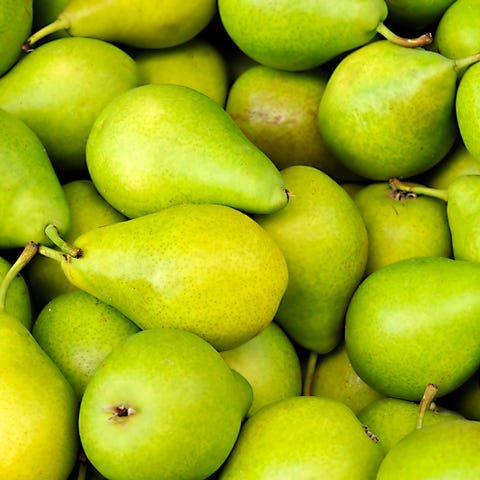
vanbeets Getty Images
19 of 25
Pears
Besides vitamin C and fiber (25% of your daily value!), a single juicy pear will also help keep you hydrated. One quick dinner idea: This Thai steak and pear salad recipe from the Good Housekeeping Test Kitchen takes only 20 minutes to make. And like plums, pears are wonderful grilled as a side dish to whatever protein main dish you're BBQing.
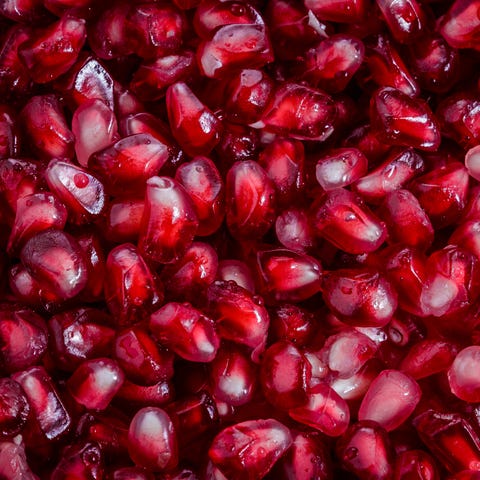
SzB Getty Images
20 of 25
Pomegranate
One cup of these petite treats packs up to 7 grams of filling fiber and 10% of the potassium you should get per day. They're also a decent source of both vitamin C and vitamin K. Use them in savory entrées or sprinkle into salads for a hint of sweetness. The arils (or seeds) have a bit of a crunch, making them a nice addition to yogurt as well.

Vitalina Rybakova Getty Images
21 of 25
Limes
Limes have some nice health benefits: They're loaded with vitamin C and are a decent source of calcium and iron. They're great in a margarita, of course, and are terrific in Thai-inspired recipes, like this seared coconut-lime chicken dish. A good tool to have on hand to make the most of all citrus fruit is a well-made zester.

KathyDewar Getty Images
22 of 25
Honeydew melons
Sweet honeydews are another fruit that pack a nice punch of vitamin C: It provides over 50% of your daily value. They'll also give you a burst of potassium and fiber. Honeydew is a nice addition to a cool summery soup, like one made with cucumbers and lime juice.

bergamont Getty Images
23 of 25
Pineapple
This tropical fruit is simply loaded with vitamin C and is an excellent source of manganese, a mineral that helps your brain and nervous system function. Pineapple is one of the best fruits to grill, whether it's for a main meal side dish or as the base for an excellent dessert.
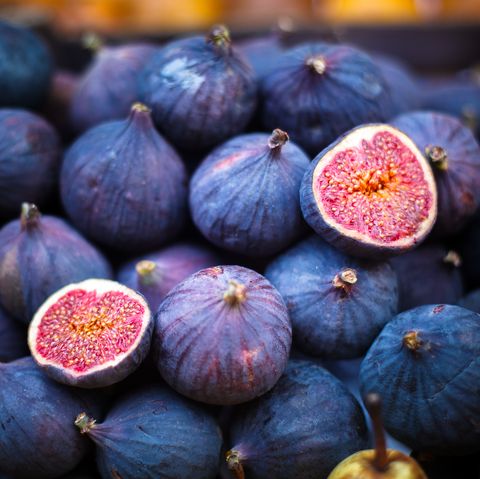
Aleksandra Stoliarova Getty Images
24 of 25
Figs
Figs are a good source of fiber; they're best eaten in moderation because they're fairly high in sugar. They're an elegant addition to a cheese plate, and are versatile in recipes — wonderful in a poultry dish, as an appetizer or a dessert.

Firdausiah Mamat Getty Images
25 of 25
Breadfruit
Another great source of vitamin C, breadfruit also has a fair amount of the minerals potassium and magnesium. It's a particularly interesting fruit, because when it's unripe it can be cooked like a potato, but when it's ripe it can be used in a dessert. Another thing that's unusual about breadfruit: It's a terrific source of protein.
Source: https://www.goodhousekeeping.com/health/diet-nutrition/g28511617/healthiest-fruits/
0 Response to "Fruits That Are Easy to Eat at Work"
Post a Comment